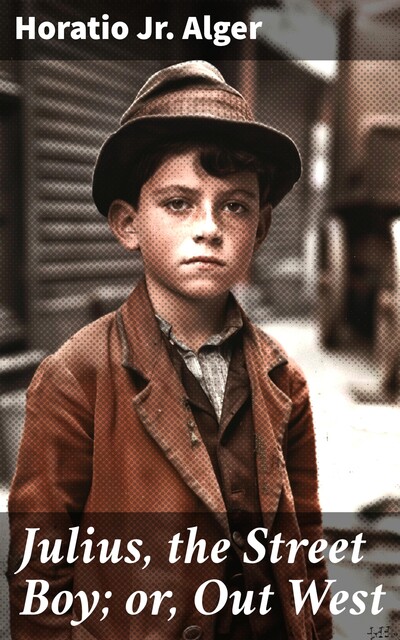We use cookies to improve the Bookmate website experience and our recommendations.
To learn more, please read our Cookie Policy.
To learn more, please read our Cookie Policy.
Accept All Cookies
Cookie Settings
In “Julius, the Street Boy; or, Out West,” Horatio Alger crafts a compelling narrative that embodies the quintessential themes of resilience and moral integrity often found in his works. Set against the backdrop of a rapidly evolving American frontier, this novella chronicles the struggles and triumphs of Julius, a street boy navigating the harsh realities of urban life while aspiring to a brighter future. Alger'Äôs signature style, characterized by its straightforward prose and didactic tone, underscores the virtues of hard work, honesty, and the pursuit of one's dreams, effectively illuminating the societal challenges faced by the youth of his time. Horatio Alger Jr. was a prolific author and social reformer, recognized for his influential portrayal of the American Dream. Living through the tumultuous post-Civil War era, Alger'Äôs own experiences shaped his compassion for the downtrodden and his belief that anyone, regardless of their background, could achieve success through perseverance. His writings often reflect a deep engagement with themes of class mobility, inspired by the socio-economic shifts occurring during his lifetime. This book is highly recommended for readers interested in 19th-century American literature, social issues, and the narrative of self-made success. Alger's engaging storytelling offers not just entertainment but also an insightful glimpse into the aspirations and tribulations of underprivileged youth, making it a valuable addition to the canon of American literary history.
more
176 printed pages
- Copyright owner
- Bookwire
- Original publication
- 2023
- Publication year
- 2023
- Publisher
- Good Press
Have you already read it? How did you like it?
👍👎
fb2epub
Drag & drop your files
(not more than 5 at once)


